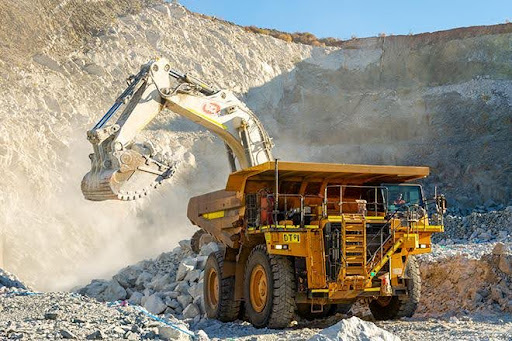Australia’s mining industry is a major contributor to its economy. In 2022, the mining sector accounted for approximately 10% of Australia’s GDP and generated over AUD 300 billion in export revenue. The mining industry employs around 261,000 Australians, highlighting its significance in supporting economic growth and job creation.
This article focuses on how mining affects various aspects of modern society, from everyday items to advanced technologies and infrastructure to economic contributions.
The Foundations of Modern Civilisation
Mining supplies essential raw materials for manufacturing, construction, and energy production. Developing and maintaining modern infrastructure, technological advancements, and basic daily conveniences would be impossible without mining.
Aluminium, found in numerous kitchen utensils and appliances, is perfect for its lightweight and durable properties. Silica components in glass are crucial for windows, screens, and various containers.
The transportation sector heavily depends on mining. Steel, derived from iron ore, is fundamental for building cars and trucks. Aluminium’s lightweight nature makes it ideal for aeroplane construction. Even rubber tyres contain mineral resources like sulphur and zinc oxide, which are products of mining.
Various mineral resources are crucial for modern society. From iron and copper to lithium and cobalt, these resources support diverse industries and technologies. The continuous supply of these minerals is vital for sustaining and advancing the way of life.
How Mining Enables the Technologies that Empower
Modern technology relies on specific minerals. Smartphones, laptops, tablets, and other electronic devices are built using materials like lithium, cobalt, and rare earth elements sourced from mining. Mining provides the foundation for technological advancements. The extraction of minerals used in electronics, green technologies, and medical devices enables the development and functioning of these essential tools.
The shift towards green technologies like Solar panels and wind turbines uses significant amounts of rare earth elements, while electric vehicle batteries rely on lithium and cobalt to store and supply energy efficiently.
Minerals and metals from mining are indispensable in the medical field. MRI machines, pacemakers, and surgical instruments require high-quality materials like titanium, cobalt, and other metals to ensure functionality and safety.
Infrastructure Development
Mining supplies essential construction materials like cement, sand, gravel, and stone are used to build homes, roads, bridges, and other infrastructure projects. Energy infrastructure relies on materials sourced from mining. Coal, natural gas, and uranium are critical for power plants. Metals like copper and aluminium are vital for electrical grids and renewable energy installations. Renewable energy solutions require specific minerals. For instance, wind turbines need rare earth magnets, while solar panels require silicon mining products.
Ceramic tiling services in the mining industry provide durable and resilient surfaces ideal for harsh environments. These tiles offer excellent resistance to abrasion, chemicals, and high temperatures, ensuring longevity and reduced maintenance costs. Specialised ceramic tiling enhances safety and efficiency in mining operations, from processing plants to conveyor systems, by protecting equipment and infrastructure, contributing to smoother, more reliable production processes.
Economic Contributions
Mining creates direct jobs in mining operations and indirect employment in related industries, like transportation, equipment manufacturing, and mining supplies and services. The mining sector majorly contributes to national economies by generating revenue through exports, supporting trade balances, and providing foreign exchange reserves. Australian suppliers of mining equipment play a critical role in sustaining this industry by offering high-quality tools and services. The export of minerals and metals bolsters national economies by supporting trade balances and increasing foreign exchange reserves. This economic activity promotes overall national growth and development.
Responsible Mining Practices for a Sustainable Future
Adhering to responsible mining practices is crucial for sustainability. This includes implementing high-pressure pipe repair techniques and corrosion protection to maintain equipment and minimise environmental impact.
Mining companies invest in community development projects, ensuring that local populations benefit from mining activities through improved infrastructure and social services.
Responsible mining practices involve strict adherence to environmental, safety, and labour regulations. This commitment ensures sustainable operations that protect workers and the environment.
Global Significance
Mining has significant geopolitical implications. Ensuring a consistent and reliable supply of critical minerals is vital for the stability and growth of the manufacturing and technology industries. This stability supports global economic and technological progress.
Conclusion
Mining provides the raw materials necessary for everyday products, advanced technologies, and critical infrastructure. Its economic contributions are vast, supporting national economies and creating jobs. Responsible mining practices are imperative for a sustainable future, ensuring that mining supplies and services benefit current and future generations. Understanding the indispensable role of mining highlights the importance of continued investment in this vital industry.
